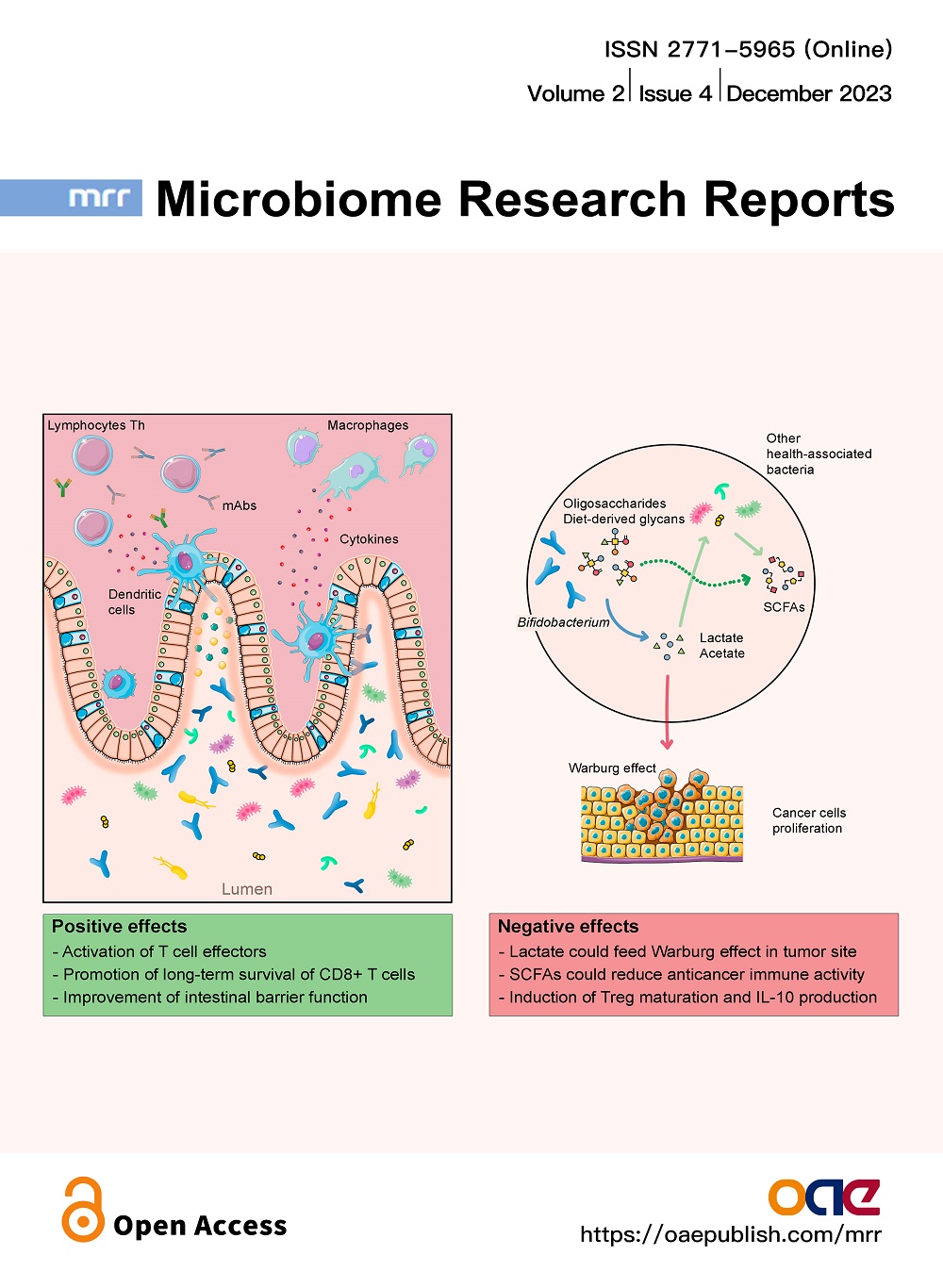Volume 2, Issue 4 (2023) – 12 articles
Cover Picture: The gut microbiome has received a crescendo of attention in recent years due to myriad influences on human pathophysiology, including cancer. Anticancer therapy research is constantly looking for new hints to improve response to therapy while reducing the risk of relapse. In this scenario, Bifidobacterium, which inhabits the gut microbial ecosystem (especially that of children) and is considered a health-associated microbe, has emerged as a key target to assist anticancer treatments for a better prognosis. However, some researchers have recently hypothesized an unfavorable role of Bifidobacterium spp. in anticancer immunochemotherapy, leading to some confusion in the field. This narrative review summarizes the current knowledge on the role of Bifidobacterium spp. in relation to anticancer treatments, discussing the pros and cons of its presence in the gut microbiome of cancer patients. The current intervention strategies based on the administration of probiotic strains of Bifidobacterium are then discussed. Finally, the need to conduct further studies, especially functional ones, is underlined to provide robust experimental evidence, especially on the underlying molecular mechanisms, and thus resolve the controversies on this microbe for the long-term success of immunochemotherapy.
view this paper 









